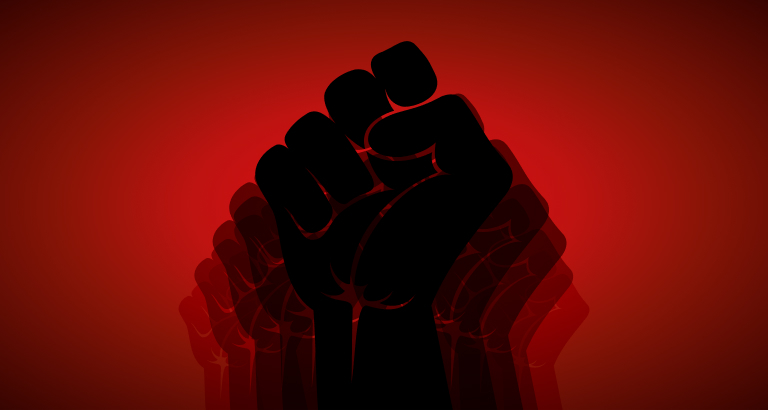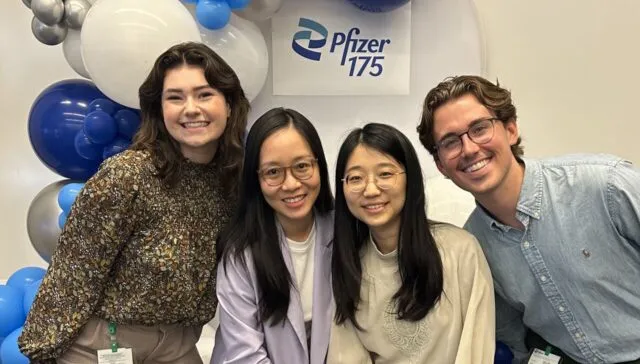Fulfilling the dream

On August 28, 1963, 250,000 activists, Black and White, young and old, joined The March on Washington for Freedom. Standing in front of the Lincoln Memorial, Dr. Martin Luther King, Jr. shared the aspirations of his dream, that we, as a nation “live out the true meaning … that all … are created equal.”
So much happened before that historic moment of hope and promise. Segregation in the U.S. Armed Services ended (1948); the Brown v. Board of Education Supreme Court decision legally ended public school segregation (1954); Rosa Parks refused to give up her bus seat the same year 14-year-old Emmitt Till was murdered for allegedly flirting with a white woman (1955); and Black and White Freedom Riders were terrorized on bus routes across the South by Whites as they protested segregated bus terminals and “whites-only” restrooms and lunch counters (1961).
Minutes before sharing the details of his dream and two months after his activist colleague Medgar Evers was murdered in his own driveway, Dr. King said, “We can never be satisfied as long as the negro is the victim of unspeakable horrors of police brutality.” So much changed after those words were spoken, yet so much did not.
Less than five weeks after King’s words echoed across the National Mall, four young Black girls were killed in a Birmingham church bombing (1963). Two months later President Kennedy was assassinated (1963), and seven months later his Civil Rights Act was signed into law (1964). Tragic violence and loss followed, including the murder of Malcolm X (1965) and the brutal attack on 25-year-old activist John Lewis and 600 others on Bloody Sunday two weeks later. On April 4, 1968 Martin Luther King was killed by an assassin’s bullet on the balcony of his Memphis hotel room and two months later presidential candidate Robert Kennedy was murdered.
Fast forward to 1983, when Martin Luther King Day was approved as a federal holiday. Seventeen years later, in 2000, all of our 50 states finally made Dr. King’s birthday a national celebration. In 2008, the world celebrated Barack Obama as the United States’ first Black president, re-electing him in 2012.
Obama’s election ushered in feelings of hope. Our country had arrived – a “post-racial society.” Yet between 2013 and 2019, 1,944 Black people were killed by U.S. police officers. Only 3% of involved police faced criminal charges and less than 1% those tried reached a verdict (mappingpoliceviolence.org). Still, in 2020 after the murder of Breonna Taylor in March and George Floyd two months later, millions of activists in the midst of global pandemic, Black, White and peoples of many other colors, ages, languages, and sexual identities joined marches and protests around the world for Freedom. So much has changed – and so much has to change.
Following Dr. King’s dream
The Boston University School of Public Health (SPH) is in and of the world. Dr. King and his spirit of justice and activism is in our DNA and alive in our community. We believe racial equity and social justice are foundational pillars of public health, and diversity, equity, inclusion, and justice are at the heart of what we do. We strive for the highest quality public health education, research, and practice that meets the challenges of our ever-changing world.
Our school Diversity, Equity, Inclusion, and Justice (DEIJ) Committee is comprised of faculty, staff, and students from across the school and is charged with examining, developing, and supporting efforts within our community to ensure that our values are infused in all we do. We eliminated the GRE requirement from our admissions process, developed a mandatory online DEIJ training for our staff and faculty, and host a variety of live workshops and seminars for students, faculty, staff, and the public.
Although we have done much over the years to evaluate and infuse equity and inclusion in our curriculum, we are currently in the midst of a systematic review of all course syllabi to ensure they reflect our values. This syllabus review will be followed by an overarching curriculum review to ensure our grading practices and course and classroom design reflect our commitment to health equity and related scholarship. In addition, we are working towards implementing required coursework for all students that focuses on the history of and solutions to systemic racism and social injustice.
Join us in this movement
Achieving Martin Luther King’s dream requires action from all of us. I urge you to take a few moments this MLK Day to reflect and educate yourself. Read, listen, watch, discuss, and ask questions. More than ever before there are a growing number of articles, books, podcasts, documentaries and community discussions on both the well-known and less-told history of structural racism, racial equity, and social justice. The more you and I learn, the more we all benefit.
This spring, BUSPH will host several Public Health Conversations that focus on the intersection of race and population health sciences, including two three-part series on Epidemiology and Race: Why and How We Study Racial Health Disparities and Antiracism as Health Policy: Race, COVID-19, and Policy Reform. These events are free and open to the public. Join us.
In the long march for civil rights and racial equity, history shows that progress is slow and hard won with fits and starts. There is no instant gratification when it comes to anti-racism work and the fight for justice. Dr. King knew full well the previous decades of struggle it took to change hearts, minds and laws that manifested his moment on the National Mall. Change is incremental and cumulative. Understanding the lifelong commitment required for the years ahead, he was speaking to us as much as to the throngs in front of him when he said, “No, no, we are not satisfied, and we will not be satisfied until justice rolls down like waters, and righteousness like a mighty stream.”
Let’s march forward together to sustain and make real Dr. King’s Dream.
If you are interested in advancing diversity, equity, inclusion, and justice at your organization, Contact us

Contributor Bios:
Craig S. Andrade is Associate Dean of Practice, Associate Professor of Practice in Community Health Sciences, Director of The Activist Lab and Interim Chair of the Department of Community Health Sciences at Boston University’s School of Public Health. In these roles Dr. Andrade works to catalyze and encourage bold public health practice locally, nationally and internationally among the school community and global partners.
Yvette Cozier is the Assistant Dean of Diversity, Equity, Inclusion, and Justice at the Boston University School of Public Health and an Associate Professor of Epidemiology. She is currently an investigator on the Black Women’s Health Study (BWHS) and the BWHS Sarcoidosis Study at the Slone Epidemiology Center. Her research interests include social and genetic determinants of health in African-American women — specifically, the influence of factors such as racism, neighborhood socioeconomic status, and genetics in the development of cancer, cardiovascular risk, and pulmonary (sarcoidosis) disease.
Meredith Brown is the Associate Director of Strategic Initiatives and DEIJ at the Boston University School of Public Health. Meredith oversees the School’s Public Health Conversations, supports DEIJ initiatives, and serves as the deputy Chief of Staff in the Dean’s Office. She is pursuing a Master of Public Health in Program Management and Maternal and Child Health.



